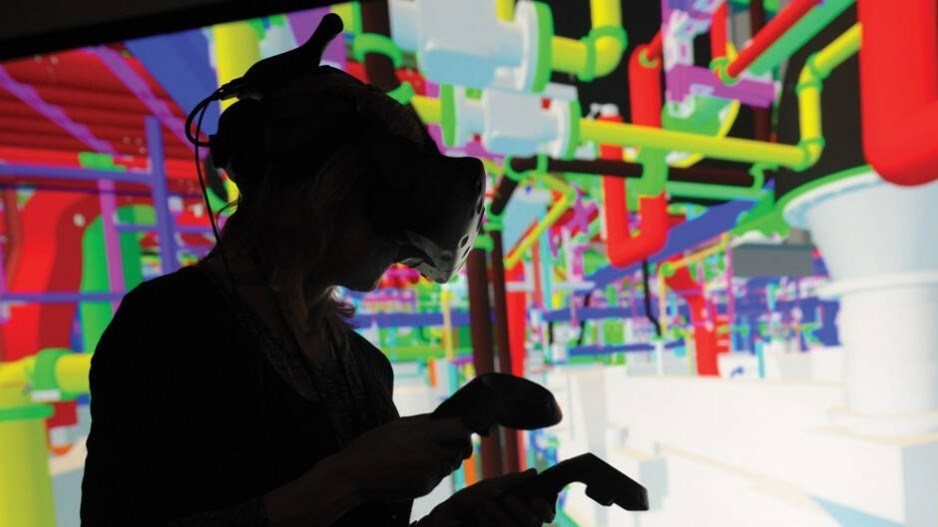Seaspan Shipyards is awarding $2.6 million in contracts to Canadian companies to develop cutting edge digital technology that will boost the marine shipbuilding industry.
The contracts involve partnerships with companies that will use Seaspan’s innovative digital Holoship program as a basis for creating their own new marine technologies.
The Holoship is a virtual reality platform customized for Seaspan by the visualization company Virtalis which was installed in a dedicated space in Seaspan’s North Vancouver headquarters in 2022. The VR allows ship designers to test out how components fit together and get a much more detailed sense of how a specific feature will work long before any steel-cutting takes place.
Now four companies involved in the marine industry - including 3GA, BCS Automation, Gastops and Kognitiv Spark – will also get a chance to put the program through its paces.
In this case, the contracts aren’t directly related to Seaspan’s ongoing work to build federal ships, including the massive joint support ships currently under construction in North Vancouver.
As part of the national shipbuilding strategy contract with Ottawa, however, Seaspan has an obligation to invest 0.5 per cent of its contract in a way that benefits development of the wider marine industry.
“It’s about building out capacity in the Canadian marine ecosystem,” said Jennifer Busler, manager of innovation at Seaspan, whose team runs the HoloShip program.
Seaspan put out a request for proposals and selected companies based on how well their proposed projects fit technology that will work with the marine industry, said Busler.
In the case of BCS Automation, which is also separately providing Seaspan with a ship control and monitoring system for the oceanographic science vessel, the company is working to build a visual system that would reflect information gleaned from that ship control and monitoring.
GasTops is putting together a system that would measure performance on key vessel systems and identify maintenance issues ahead of time.
3DA Marine and Kognitiv Spark will use a Microsoft product called the Hololens to create a “mixed reality environment” using the Holoship, said Busler. The headset will allow a worker on a ship to view an area in real time, while overlaying a 3D virtual systems model over top of that. The system would also allow a worker to control systems in the ship remotely.
The projects are expected to run until 2024.
Busler said while similar technologies are already in use in both car manufacturing and the aeronautical industries “for the marine industry, they are relatively novel.”
So far, the Holoship has been used as part of Seaspan’s own ship design process.
Issues like assessing lines of sight and arrangements of equipment lend themselves to digital tryouts ahead of time, said Busler.
At Seaspan’s corporate headquarters on the North Vancouver waterfront, the HoloShip’s “ActiveWall” takes up a 5.6-metre immersive display wall. Donning 3D glasses, multiple people can be immersed in the same 3D environment. Off-site partners can also take part remotely.




